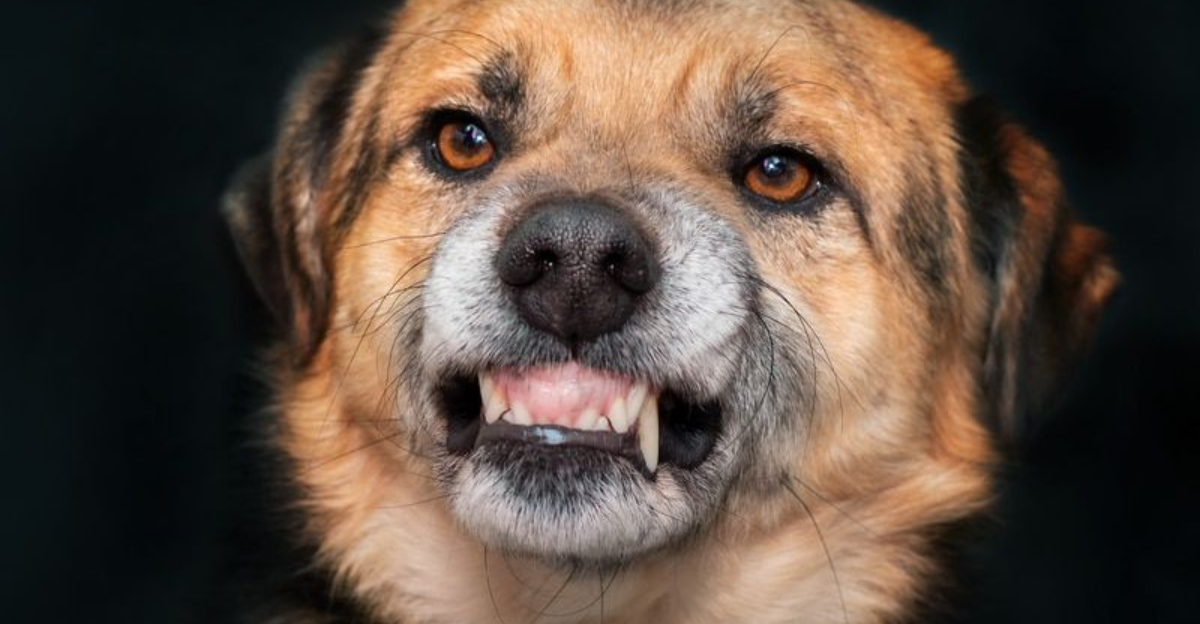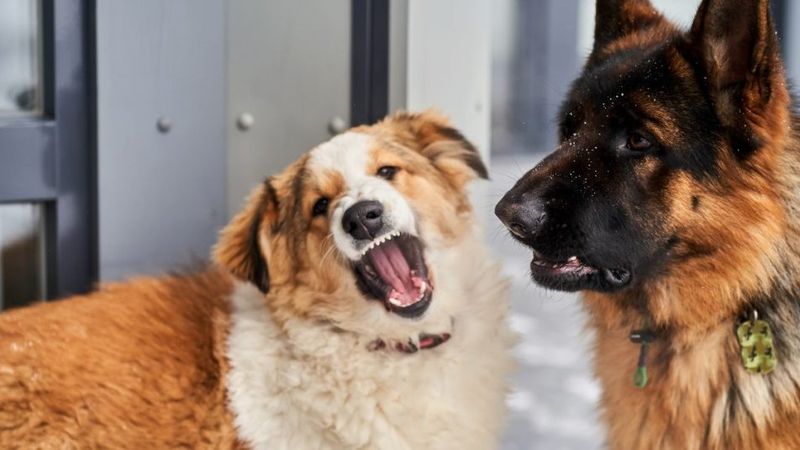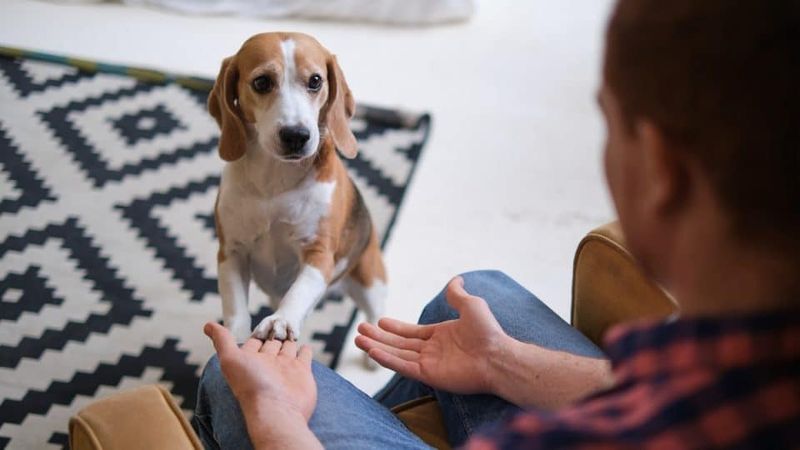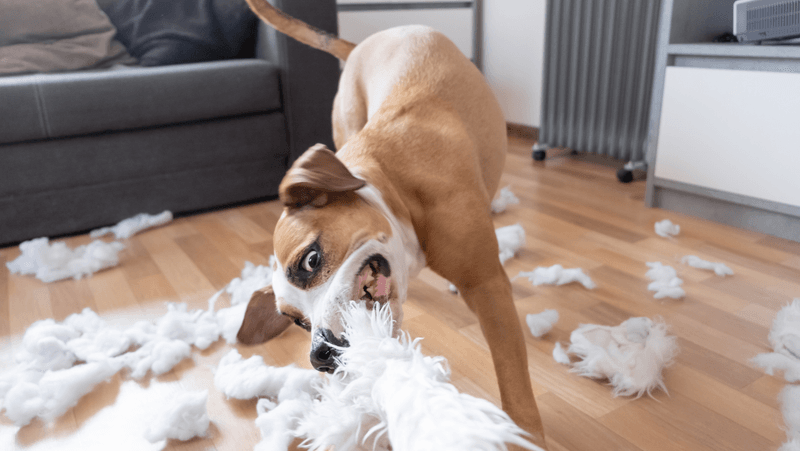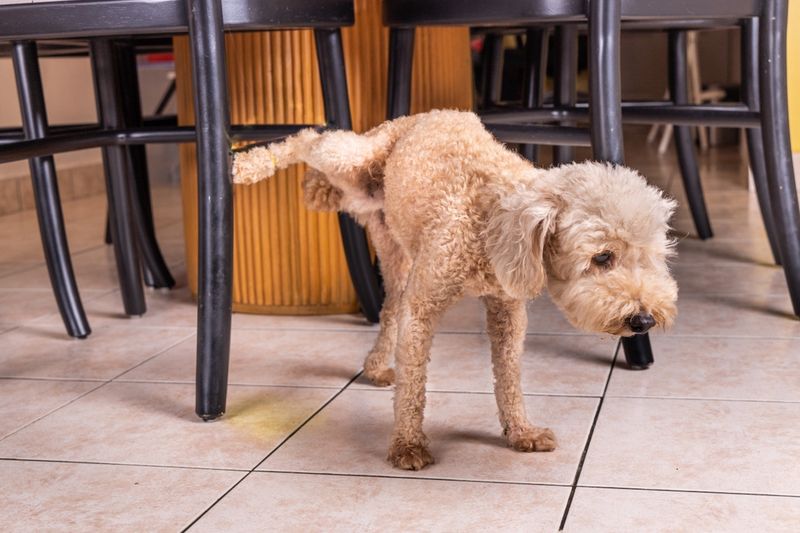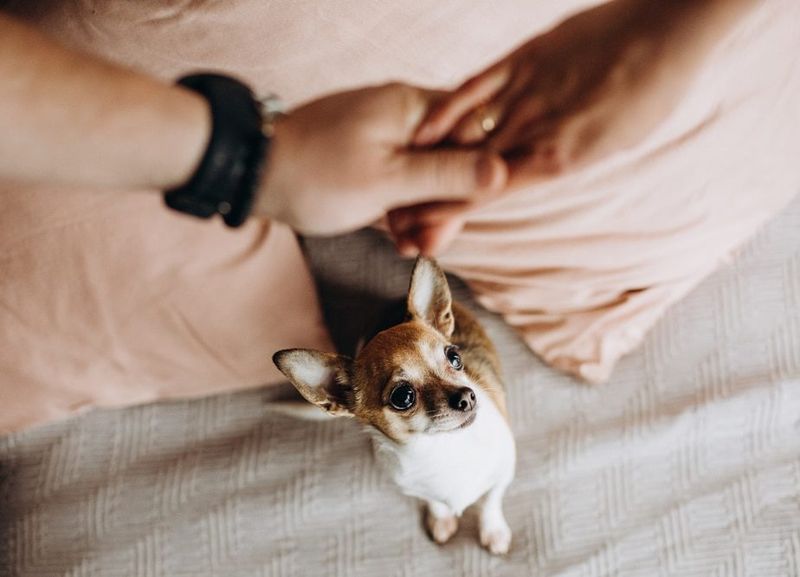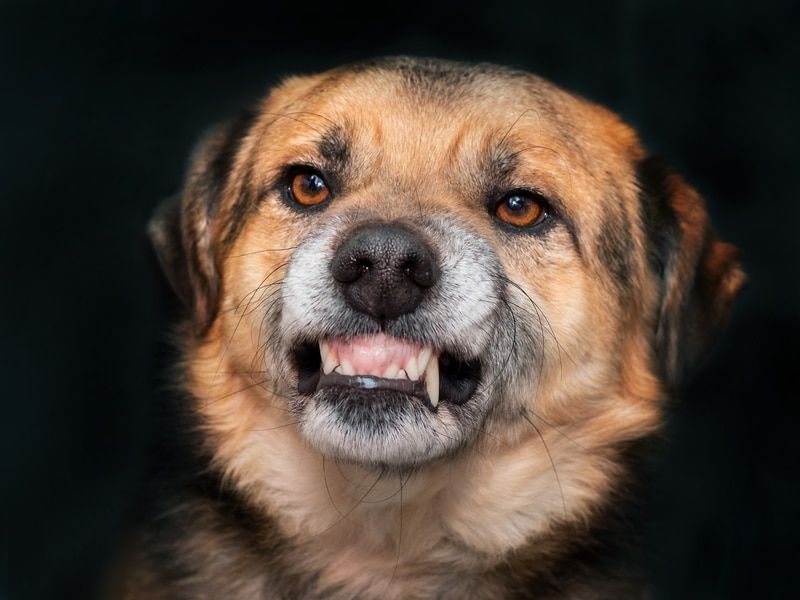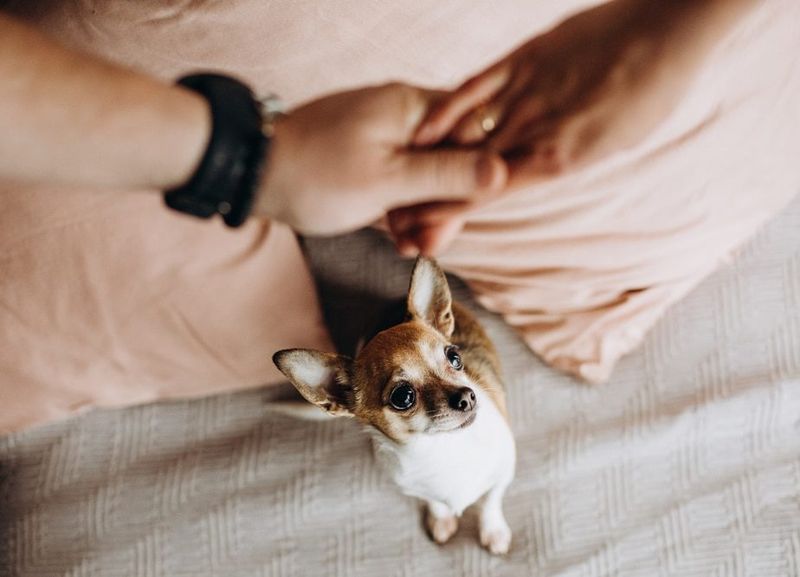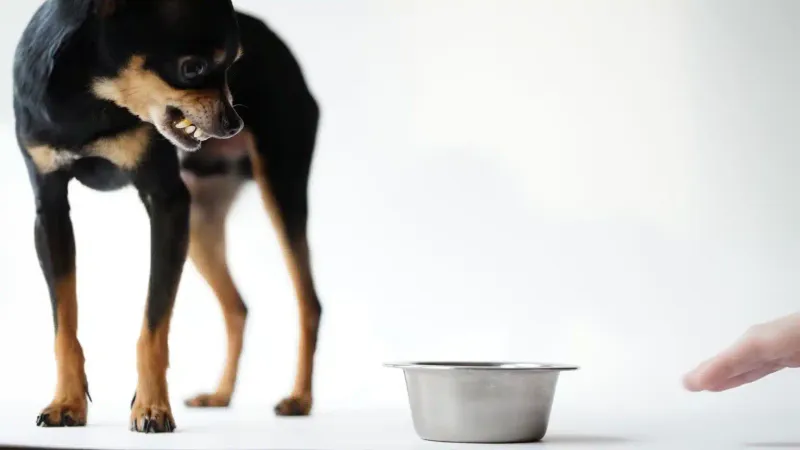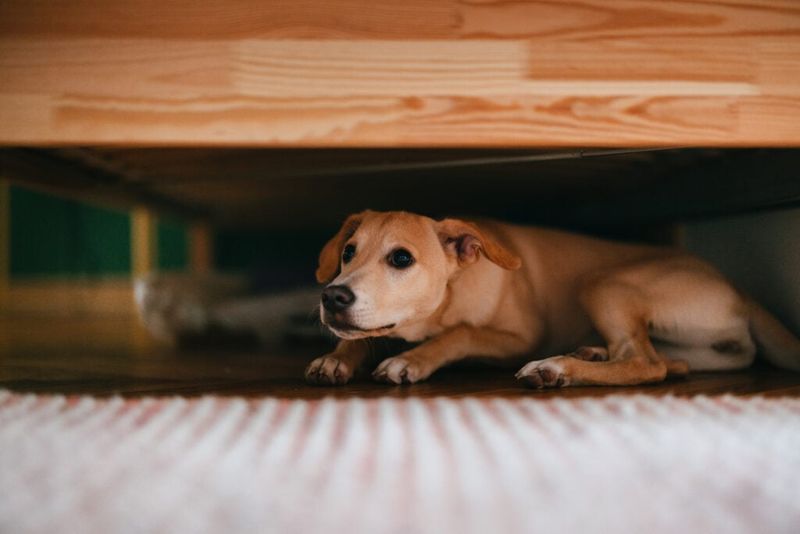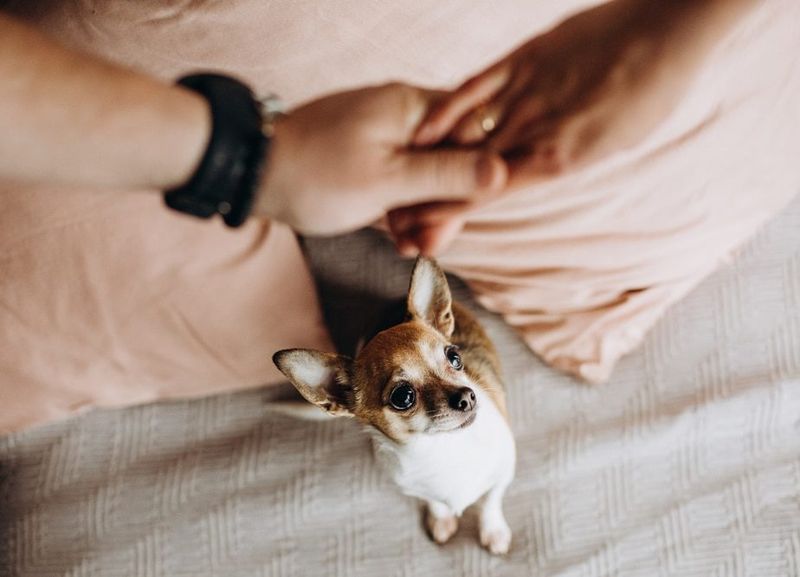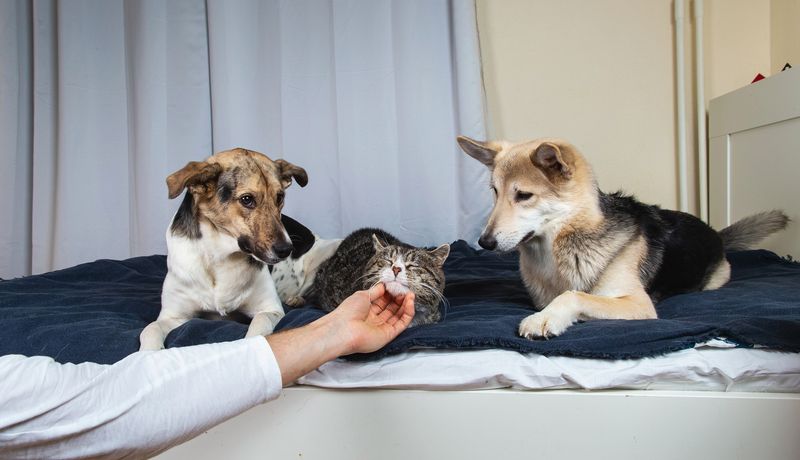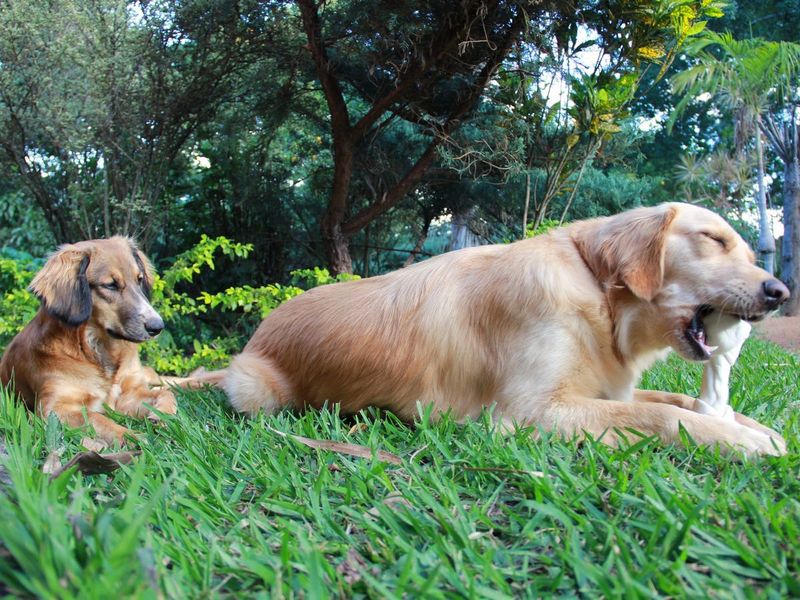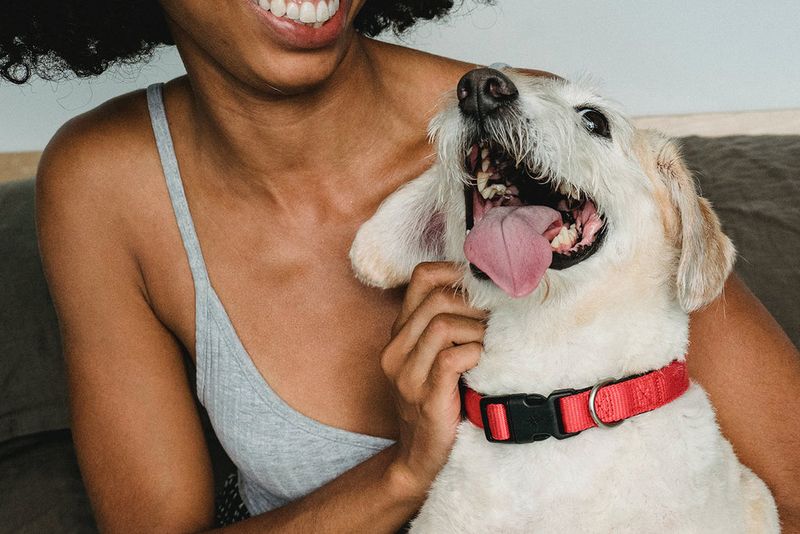Dogs are incredibly expressive creatures. While they may not speak our language, their actions often tell us more than words ever could. Jealousy in dogs can manifest in various ways, and recognizing these signs is crucial for maintaining a harmonious household. This guide will walk you through 15 specific signs that your furry friend might be feeling jealous. Understanding these behaviors not only helps in addressing your dog’s emotional needs but also strengthens the bond you share. Let’s explore these indications and how they reflect your dog’s emotions.
Barking Excessively
Is your dog’s barking becoming more frequent and loud? This could be a sign of jealousy. Dogs often use barking to signal their need for attention, especially when they notice their owners focusing on something or someone else. Excessive barking can be your dog’s way of saying, “Look at me! I’m here too!”
Consider the context: Has there been a new addition to the family or a change in routine? Such changes might trigger your dog’s jealous bark. Address this behavior with patience, ensuring your furry friend knows they are still cherished and valued in the family.
Pawing or Nudging
Does your dog frequently nudge your hand or paw at you? This behavior is often an indication of jealousy. Dogs are tactile creatures, and when they feel ignored, they’ll use physical touch to regain your attention.
Imagine reading a book, and suddenly, a furry paw rests on your lap. It’s your dog’s way of saying, “Hey, don’t forget about me!” This behavior might seem cute, but it’s essential to ensure your dog feels included and loved, even when your attention is divided.
Destroying Toys or Items
Finding your favorite shoes in shreds? Destruction of toys or household items can be a clear sign of jealousy. Dogs might act out their frustration by chewing or tearing things when they feel overlooked.
This destructive behavior is often a cry for help. Your dog might be saying, “If I can’t get your attention positively, maybe this will work!” Addressing this involves providing alternative outlets for their energy, like interactive toys, and reinforcing positive behavior with love and care.
Marking Territory
Unexpected indoor accidents, like marking territory, can be a sign of jealousy. Dogs may feel the need to assert their presence, especially if they perceive a threat to their bond with you.
This behavior often emerges when there’s a new pet or person in the house. It’s your dog’s way of reinforcing their place in the family hierarchy. To address this, ensure your dog receives ample attention and reassurance of their role in your life, reducing anxiety and fostering security.
Clingy Behavior
Notice your dog shadowing your every move? This clingy behavior might be a sign of jealousy. Dogs can become overly attached and follow you everywhere when they sense a shift in attention away from them.
This behavior is their way of trying to maintain a connection and ensure they are not forgotten. It’s essential to acknowledge their presence and spend quality time interacting with them, reinforcing their importance in your life.
Growling at New Additions
If your dog growls at new family members, it might be displaying jealousy. This protective and sometimes aggressive behavior stems from fear of losing their place.
Growling is their way of setting boundaries and expressing discomfort. Address this cautiously. Gradually introduce new additions, ensuring your dog feels secure and not replaced. This requires patience and reassurance to ease their anxiety and build trust.
Ignoring Commands
When your usually obedient dog starts ignoring commands, it might be a sign of jealousy. This defiance can stem from feeling overlooked or undervalued.
Imagine calling out a command, and your dog pretends not to hear. This can be their way of rebelling against the perceived neglect. Counteract this by reinforcing training with positive reinforcement and ensuring they feel appreciated in their role, reducing feelings of jealousy.
Eat Less or Overeat
Changes in eating habits, like eating less or overeating, can indicate jealousy. A dog might lose interest in food or indulge excessively to cope with stress or emotion.
This behavior reflects their emotional state – feeling neglected might decrease appetite, while anxiety can lead to overeating. Monitor their diet closely and address underlying emotional needs, ensuring they feel secure and valued.
Unusual Whining
Persistent whining, especially in new situations, can signal jealousy. Dogs may whine to express their discomfort or desire for attention.
Imagine a soft whimper as you chat with a friend. This is your dog’s plea for inclusion. It’s crucial to engage them positively, reinforcing their role in your life and reducing feelings of being left out.
Hiding or Cowering
If your dog starts hiding or cowering, they might be feeling jealous. This retreat can happen when they feel threatened or overlooked.
Picture a once-social dog now retreating to corners. It’s their silent protest, expressing feelings of insecurity. Reassurance and gentle encouragement can help bring them back to their confident self, strengthening your bond.
Jumping Up
Jumping up on owners or guests can be a sign of jealous behavior. Dogs may resort to this to capture attention quickly.
Envision a sudden leap as you entertain guests. This energetic move is your dog’s way of asserting, “I’m here too!” Address this by acknowledging their presence, providing regular attention, and discouraging over-enthusiastic greetings.
Being Overly Protective
Overprotectiveness can signal jealousy in dogs. They might see themselves as guardians of your bond, especially if they feel it’s threatened.
Picture them watching newcomers with a discerning eye. This behavior is their attempt to safeguard their place in your heart. It requires balance – reassuring them of their role while gently introducing and socializing them with new faces.
Whimpering When Left Alone
Whimpering when left alone might be a jealous dog’s cry. Dogs can feel a heightened sense of loss or fear when separated from their beloved human, especially if someone else is getting more attention.
Imagine their whimpers as you step out the door. It’s vital to spend quality time together, reinforcing their importance to ease these feelings.
Turning Back on You
When a dog turns their back on you, it can be a sign of jealousy. It’s their way of expressing displeasure or feeling overlooked.
Picture a small dog seated away, refusing eye contact. This silent statement can mean “I’m upset.” To mend this, engage them with affection and activities, reaffirming their place in your life.
Demanding Petting or Attention
Dogs demanding petting or attention can be showing jealousy. They might continuously nudge or sit beside you, insisting on interaction.
Envision a persistent nudge while you work. This behavior is their reminder of “I’m here and need you.” Balancing attention among family members or activities ensures they feel seen and loved.
